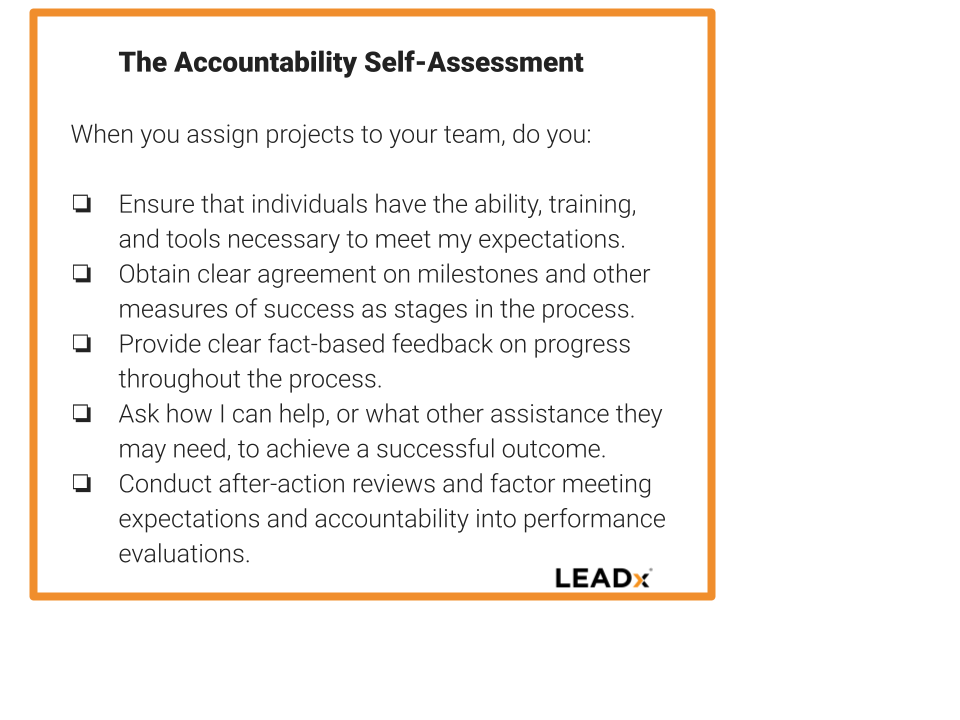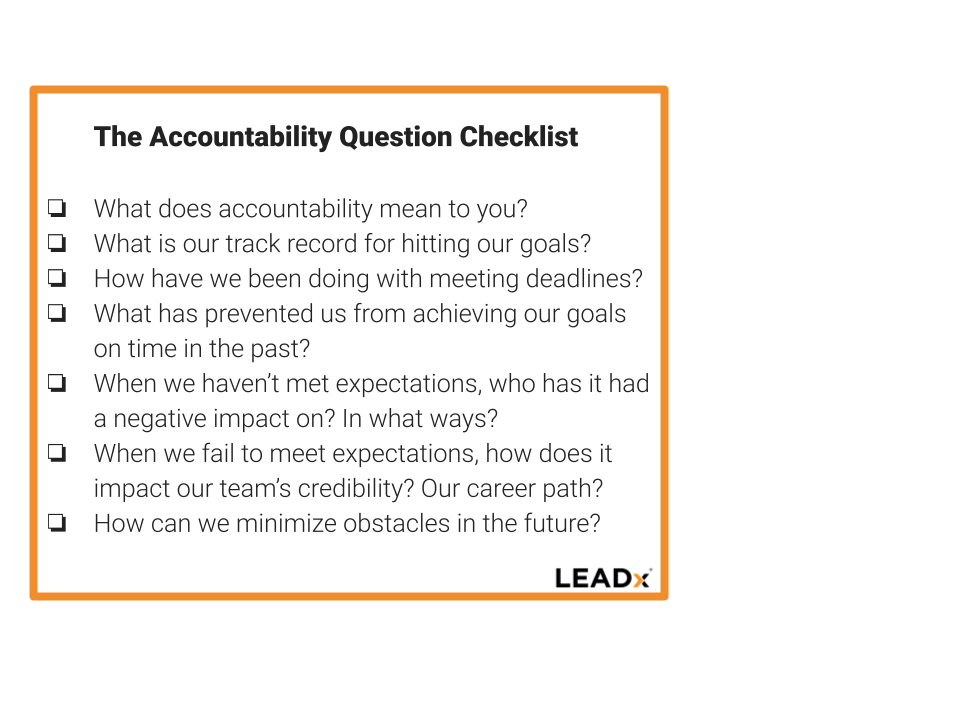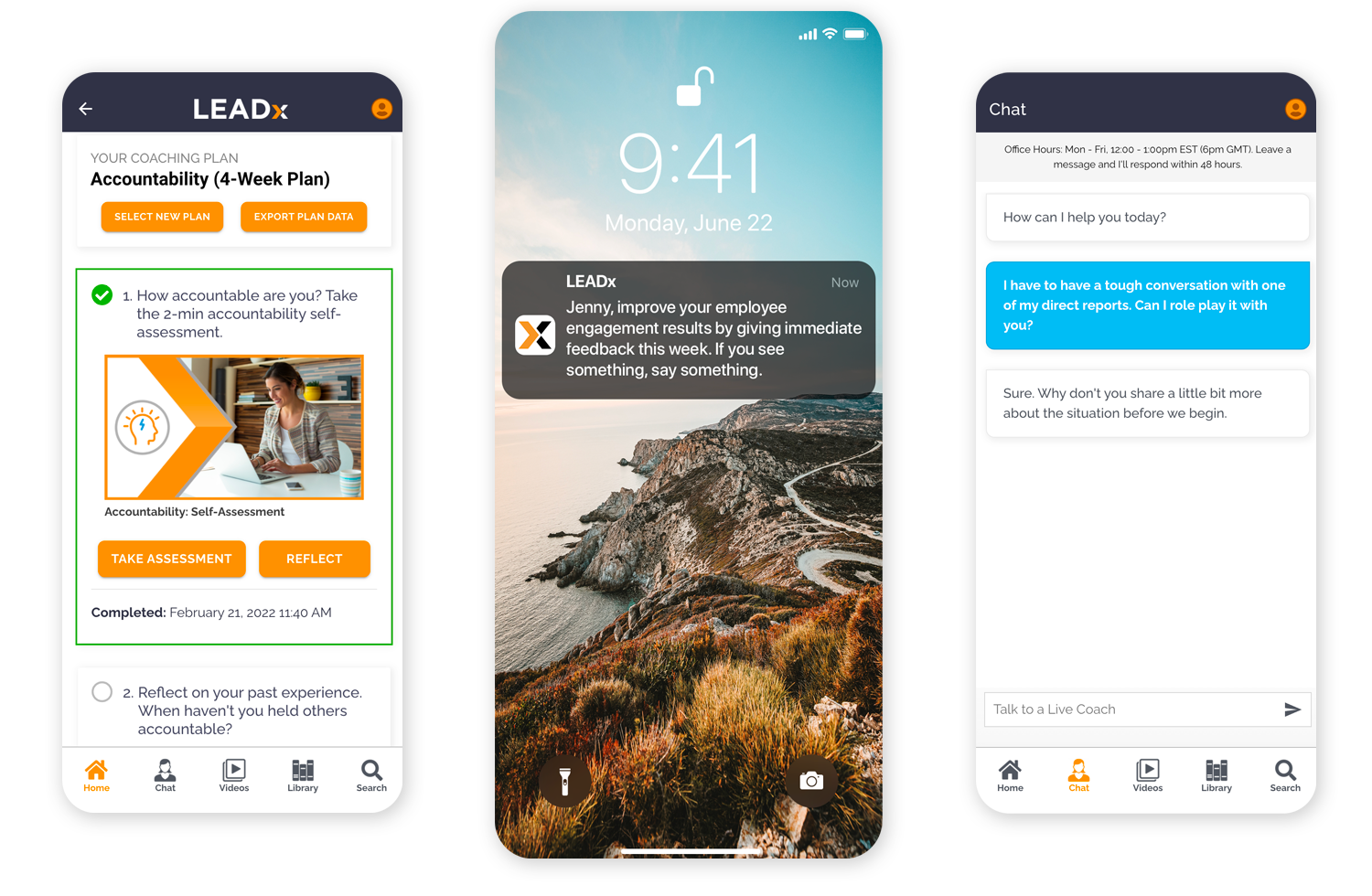
Accountability Training: Everything You Need To Know
In our work and interviews with leadership development professionals, we’ve seen a trend emerge over the last few years. “Accountability” comes up more and more often as a core leadership competency.
That’s because accountability training has the potential to make a big difference. It’s a foundational skill for a healthy and productive company culture. A culture of accountability empowers employees, helps build trust, and motivates employees to seek feedback and grow.
To put together this article on accountability training, we drew on those conversations with highly successful leadership development professionals. Here’s what you need to know about building or choosing a successful accountability training program.
What Is Accountability Training?
Accountability training equips employees to hold themselves and the people around them accountable for their commitments.
Accountability training tends to be built around learning key behaviors and putting them into practice. Common accountability behaviors include: Giving and receiving feedback in a tactful way, owning commitments, being proactive not reactive, admitting mistakes, asking for help when you need it, tackling tough conversations with colleagues, making sound decisions, standing up for core values, and taking appropriate risks.
Many accountability training programs also focus on behaviors specific to a job type, role, or industry. For example, accountability in healthcare impacts patient safety protocol and surgical complication numbers. In manufacturing, accountability impacts worker safety, product quality, and process efficiency. Accountability training in these examples may get very specific about how certain behaviors impact performance in those jobs.
Additional Sources:
The Business Case for Accountability Training
Accountability affects the bottom line. In their book The Oz Principle, accountability researchers and experts, Roger Conners, Tom Smith, and Craig Hickman, wrote:
We have witnessed countless organizations create greater accountability by applying [our accountability] lessons to produce such results as a 200% increase in pace-setting profit margins, a 50% reduction in customer handling time, a 900% increase in stock price, and an 80% reduction in quality-control complaints.
What is it about accountability that impacts job performance and job satisfaction?
For individuals, accountability training can help people avoid problems with procrastination, asking for feedback, perfectionism, complacency, asking for help, and admitting their shortcomings.
For leaders, accountability training can help with all of the above plus with giving tough feedback, holding others accountable, and role modeling accountability to their teams.
For teams, accountability drives collaboration by freeing team members up to make decisions and take risks, reducing incidents where a team pawns off responsibility to one another (social loafing), building trust, and increasing comfort around holding each other accountable for team values, norms, and the work that needs to get done.
Additional Sources:
- Accountability and Teamwork
- On Accountability and Leadership
- On Compassion and Accountability in Leadership
Accountability Training Helps Retain Employees During the Great Resignation
“Few things can help an individual more than to place responsibility upon him, and to let him know that you trust him.” —Booker T. Washington
The Great Resignation isn’t the result of any one thing, but when you look at Pew Research’s “top reasons given for leaving a job in 2021,” you can see how leaders trained in accountability could make a big difference in helping to retain employees. For example, “opportunities for advancement,” “respect,” and “flexibility” are all closely tied to how leaders hold themselves and their employees accountable. Leaders who hold employees accountable, tend to respect them and give them flexibility (not micromanage). Accountable leaders also give employees tough feedback and hold themselves as leaders accountable for their people’s growth.
 Netflix is a company known for their writing about and approach to company culture. In Netflix’s “Freedom & Responsibility” slide deck on culture (the one Facebook’s Sheryl Sandberg referred to as “one of the most important documents to come out of Silicon Valley”), their philosophy around building company culture is to hire accountable people and then hold them accountable. That way, they don’t have to spend their time coming up with, setting, and enforcing rules. In other words, Netflix hires for and maintains a culture of accountability, and the outcome is retainment of talent.
Netflix is a company known for their writing about and approach to company culture. In Netflix’s “Freedom & Responsibility” slide deck on culture (the one Facebook’s Sheryl Sandberg referred to as “one of the most important documents to come out of Silicon Valley”), their philosophy around building company culture is to hire accountable people and then hold them accountable. That way, they don’t have to spend their time coming up with, setting, and enforcing rules. In other words, Netflix hires for and maintains a culture of accountability, and the outcome is retainment of talent.
Additional Resources:
Should I Find An Outside Training, Or Develop One In-House?
There are pros and cons to in-house development versus hiring an outside expert.
With in-house development, you can build a program that’s tied directly to your competencies, your desired behaviors and outcomes, and your audience’s job. For example, NextGen Healthcare built a training program for their leaders that’s centered around accountability. Because they built it in-house, they can target accountability behaviors that will have the greatest impact on their leaders.
Outside experts in accountability can bring a refined, expert approach on-demand. Outside trainings remove the time and energy needed to develop a program in-house. At LEADx, for example, we’ve applied our expertise on accountability to build out a training and coaching offering that organizations hire us to put their employees through.
Measuring Your Progress With Accountability
“If you cannot measure it, you cannot improve it.” —Lord Kelvin, British mathematician
One of the best ways to kick off accountability training, or any training for that matter, is with a self-assessment. A self-assessment can help participants gain some real insights into their existing strengths and weaknesses surrounding accountability. Here’s a sample of the items on our accountability self-assessment:

The beauty of a self-assessment is that participants can return to these items after they practice to reflect on how their behaviors have changed. This sets people up to monitor and track their progress, and it helps get them into a reflective mode.
Another way to check in on accountability progress, and cultivate a culture of accountability on your team, is to have a set of questions that you run through either as a team or in one-on-one meetings. Here’s an example of questions you might ask:
 A third way to measure progress with accountability is to send out pulses checking on specific behaviors relevant to accountability. At UiPath, they emphasize the importance of managers having good conversations with their employees. So, after training managers, they send out pulses to their employees asking, “Have you had a good conversation with your manager recently?” It’s a simple yet highly effective way to determine whether or not the behaviors you want to see are happening. An added benefit is that you can see where the conversations are and aren’t happening, so you know who to follow up with.
A third way to measure progress with accountability is to send out pulses checking on specific behaviors relevant to accountability. At UiPath, they emphasize the importance of managers having good conversations with their employees. So, after training managers, they send out pulses to their employees asking, “Have you had a good conversation with your manager recently?” It’s a simple yet highly effective way to determine whether or not the behaviors you want to see are happening. An added benefit is that you can see where the conversations are and aren’t happening, so you know who to follow up with.
A fourth way to measure progress is to administer a 360 assessment that includes accountability as a measured competency. This allows you to get a more accurate picture of each participant’s accountability as that person’s boss, peers, and direct reports all rate them. It also helps the participant to see any blind spots between how they perceived their own accountability and how others perceive them.
One last way that you can both measure and reinforce behaviors relevant to accountability is to send out behavioral nudges reminding people of what they learned and what behaviors they should apply on the job. This helps leaders remember key accountability behaviors long-term, and it helps them put those behaviors to practice.
The Positive Ripple Effect of Accountability Training
When you successfully get accountability training to stick, it casts a positive ripple effect on all your leadership development initiatives. In our interviews with leadership development professionals at TIBCO, Groupon, and AllianceBernstein, they all identified accountability as a core strategy to get other training initiatives to stick. TIBCO leaned on the accountability of their managers to get people to buy into their first-time leader program. Groupon used an assessment of people management as a core piece of each leader’s performance evaluation to ensure accountability to their training programs. And, AllianceBernstein, like many other companies, saw accountability as the essential link between their DEI initiatives and implementation. Train accountability well, and it can support buy-in for everything else you train too.






